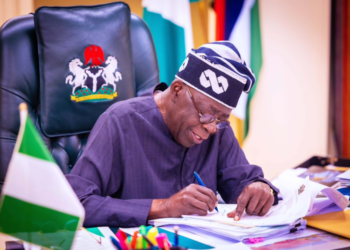
It is no longer news that the Taliban took over the Afghan seat of power after the U.S President announced a planned withdrawal of American and NATO forces in August.
However, what was expected to be a 3 months takeover turned into a complete takeover by the Taliban in less than 3 weeks as American forces began their gradual withdrawal on the 1st of August.
In a public announcement on Monday, U.S President, Joe Biden said, “I stand squarely behind my decision.”
“After 20 years, I’ve learned the hard way that there was never a good time to withdraw U.S. forces.”
He blamed the Afghan political elites stating that they gave up and fled the country, citing the Afghan military collapsed, without trying to fight.
This comes after a report that a ceasefire agreement being negotiated in Qatar fell apart after President Ashraf Ghani’s resignation which would have paved way for a power-sharing deal. The breakdown in Afghanistan should serve as a lesson for Nigeria’s political leaders. Despite the U.S spending billions to fund and train the Afghan army, the Taliban took it without a fight due to issues ranging from culture to loyalty to Kabul and also gross corruption from the Afghan political elites.
Nigeria is also in a similar battle for the minds and bullets against terrorism as Nigeria faces a terrorist war on three fronts, Boko Haram, ISWAP, and “Bandits” in northern Nigeria, with similar cases of land being controlled by ISWAP where they administer, have a governor and also receive taxes from the locals. This should also serve as a reminder that with the events in Afghanistan, well organized nonstate violent actors may be encouraged.
Confidence MacHarry, Security Analyst at SBM Intelligence says the Taliban’s victory is a moral incentive for many groups who would like the same thing, Boko Haram being one.
“But I don’t think it changes anything about the latter’s operations,” he adds.
What should the Nigerian army do to ensure ISWAP is not emboldened?
MacHarry says, “It’s not only a problem for the military. It is also a problem for governments at all levels.
On the question of whether the rising rate of Hisbah/Sharia Law is an ideology breeding ground, McHarry adds, “Hisbah, and its parent ideology – Sharia law – have been in existence since the turn of this century.”
He disclosed that the prevention of Jihadist ideology is something some state governments including Kano have tried to check by fining Islamic clerics spreading incendiary messages.








